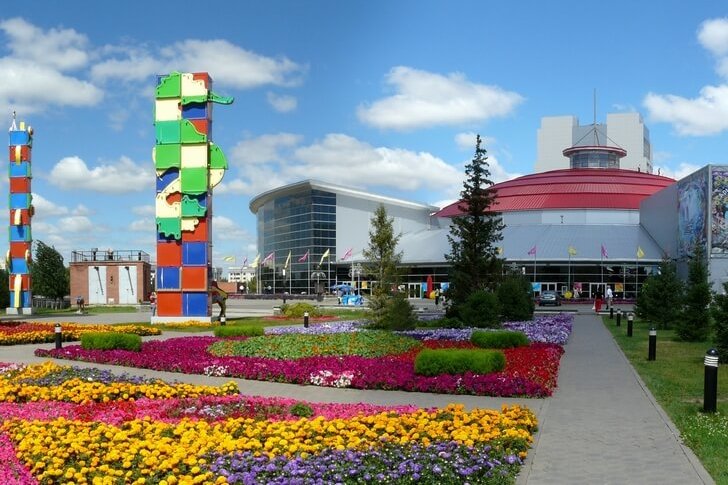Astana looks like a magical oasis in the middle of the endless Kazakh steppes. The city was rebuilt almost from scratch a couple of decades ago after a decision was made to move the capital here from the city of Alma-Ata. Many cultural objects of the renovated Astana were built thanks to President N. Nazarbayev.
The unusual futuristic forms of Khan Shatyr and the Astana Circus, the sky-piercing minarets of the Khazret Sultan Mosque and the grand scale of Astana-Baiterek can impress any traveler. Today the city continues to develop actively. New interesting places are constantly appearing here. Astana is a hospitable and pleasant city where guests are always welcome. It is definitely worth coming here for new experiences.
What to see and where to go in Astana?
The most interesting and beautiful places for walking. Photos and a short description.
- Monument Astana-Baiterek
- Khan Shatyr
- Palace of Peace and Accord
- Singing Fountain of Astana
- Park of Lovers
- Palace of Independence
- Palace of Creativity Shabyt
- Monument Cossack Eli
- Akorda
- Mosque Khazret Sultan
- Mosque Nur-Astana
- Assumption Cathedral
- Museum of the First President of the Republic of Kazakhstan
- National Museum of the Republic of Kazakhstan
- Museum of Saken Seifullin
- Astana Opera
- Russian Drama Theater named after M. Gorky
- Central Concert Hall Kazakhstan
- Astana circus
- Embankment of the Ishim River
- Monument to Khan Kenesary
- Triumphal arch Mangilik El
- Astana Arena
- Map of Kazakhstan Atameken
- Entertainment center Duman
Monument "Astana-Baiterek"
The monument was erected on the central square in 2002 at the initiative of President N. Nazarbayev. The impressive 97-meter stele, topped with a gilded ball 22 meters in diameter, was made according to the design of A. Rustembekov. "Astana-Baiterek" symbolizes a new stage in the life of the Kazakh people, which was marked by the transfer of the country's capital from Alma-Ata to Astana.

"Khan Shatyr"
Shopping and entertainment center built in 2010. The unusual design of the building resembles a huge tent spread out among the endless Kazakh steppes. Inside there are shops, restaurants, office space, a family amusement park, a water park and a real beach resort with sea sand specially imported from the Maldives.
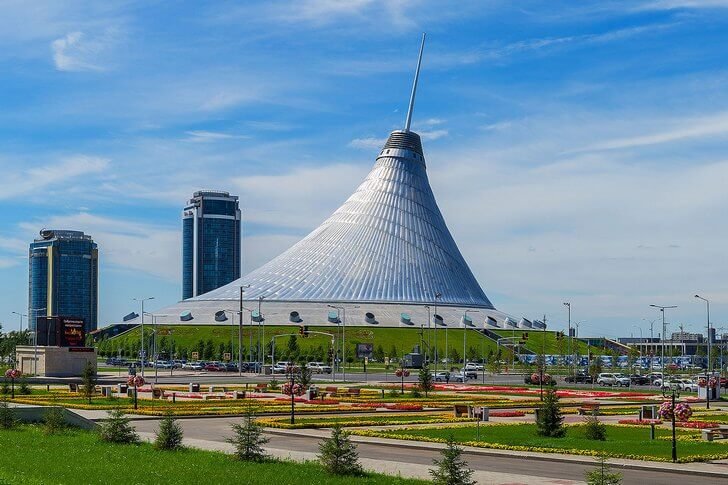
Palace of Peace and Accord
The building in the form of a pyramid, located next to the monument "Astana-Baiterek". It was erected in 2006 for the meetings of the international congress held in Astana, dedicated to world religions and religious tolerance. The building also has an opera hall, at the opening of which Montserrat Caballe herself sang. Today the palace is used for exhibitions, conferences and concerts.
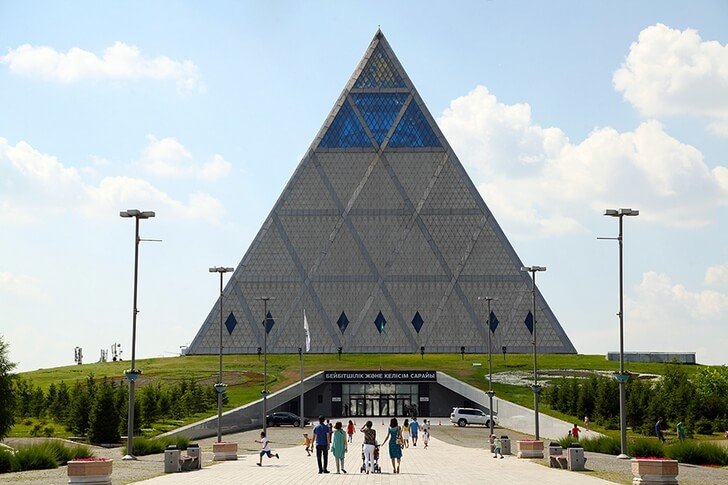
Singing Fountain of Astana
The Singing Fountain is a whole alley of dancing water streams that change shape to the sound of music and shimmer in the bright colors of the evening illumination. The composition of the fountain harmoniously complements the look of the center of Astana - unusual, bright and futuristic. In the evenings, townspeople and tourists like to stroll here, admiring the bewitching dance performed by numerous jets of water.
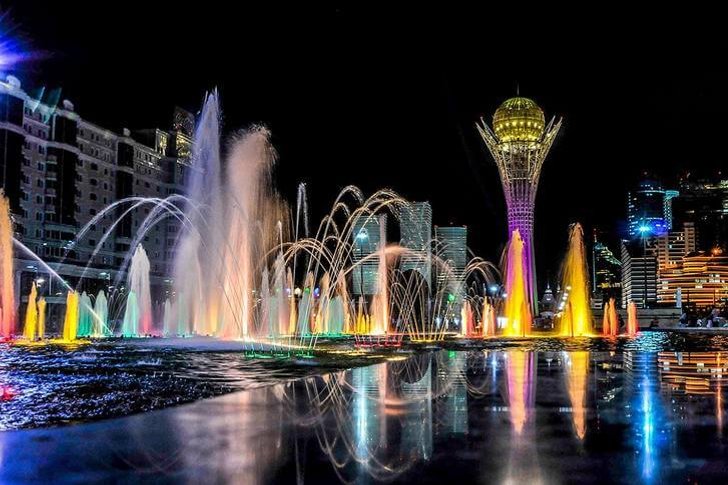
Park of Lovers
One of the most romantic places in the Kazakh capital. Weddings and wedding photo shoots of the newlyweds are often held here. The park covers an area of 14 hectares. Its territory is decorated with lawns with bright flowers and trees in accordance with the principles of German landscape design. The place got its name thanks to a bronze sculpture depicting a girl and a boy in love.
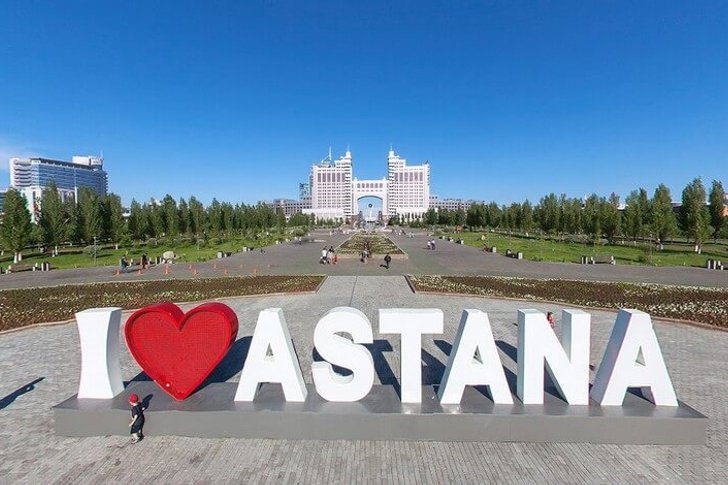
Palace of Independence
A complex intended for holding state and other official events (including international ones), as well as for organizing exhibitions, concerts and celebrations. It houses several halls, art galleries, cinemas, a historical museum and an electronic library. The building was built in 2007-08 in the style of modern architecture.
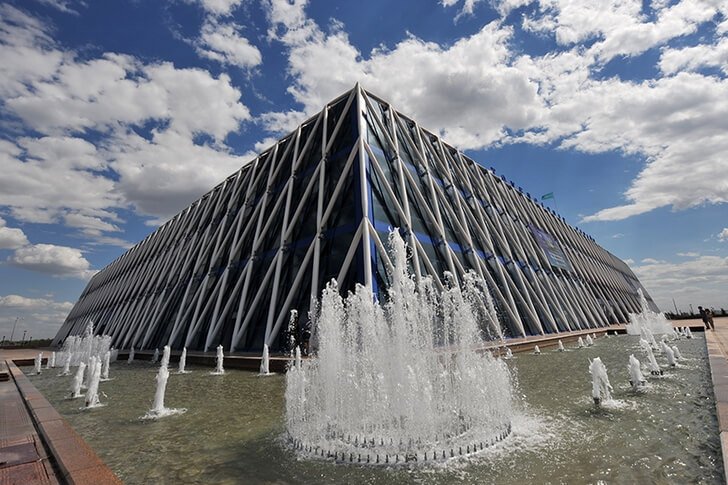
Palace of Creativity "Shabyt"
A multifunctional cultural complex, which was opened on the 10th anniversary of the transfer of the capital to Astana. "Shabyt" unites under its roof a university of arts, art and music studios, lecture and concert halls, conference rooms, a gym and a library. It is an important cultural center of Kazakhstan, where a unique creative space has been created.
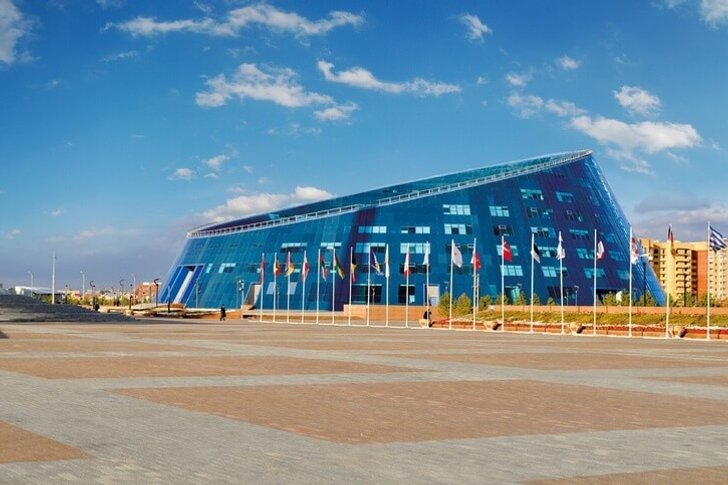
Monument "Cossack Eli"
The monument is located on Independence Square. It is a white stele 91 meters high, crowned with the figure of the mythical bird Samruk. This size was not chosen by chance, since it was in 1991 that Kazakhstan became an independent state. Closer to the base, on all sides of the monument, there are bas-reliefs depicting important milestones in modern Kazakh history. One of the figures is President N. Nazabraev.
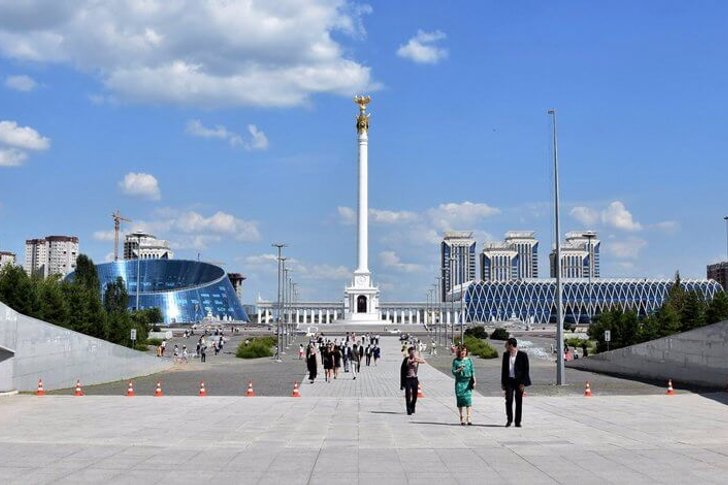
Akorda
The official residence of the President of Kazakhstan. Nearby are the buildings of the government, parliament and the Supreme Court. Akorda looks pompous and monumental, especially considering its impressive size. The building is crowned with a blue dome with a gilded spire. In front of it stretches a spacious square with fountains, flower beds and well-groomed alleys.
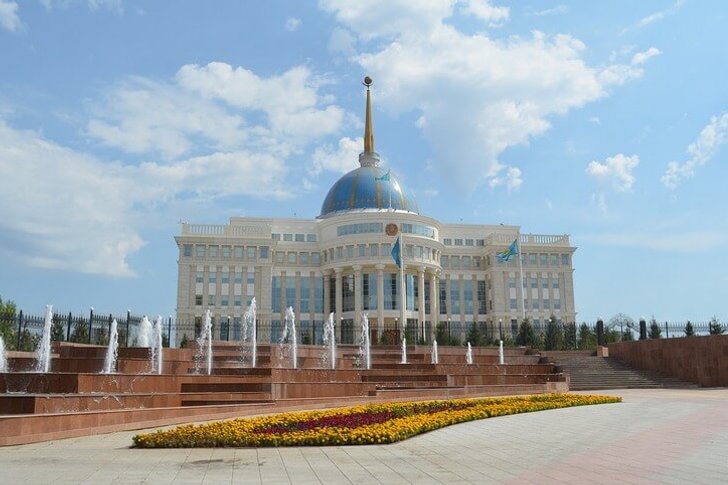
Mosque "Khazret Sultan"
The main mosque of Astana, which ranks second in size in all of Central Asia (the first is "Turkmenbashi Rukhy"). The capacity of the temple is up to 10 thousand people. It was built in 2012 in the style of classical Islamic architecture. "Khazret Sultan" is a real work of urban planning art, which occupies a special place among the city's attractions.
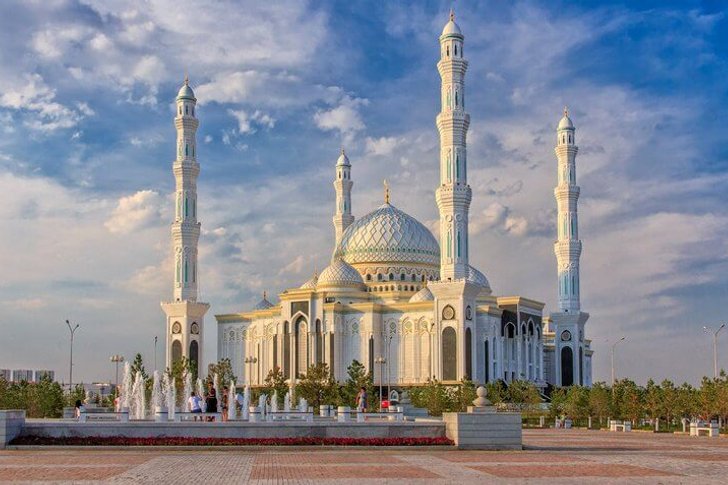
Mosque "Nur-Astana"
This temple belonged to all the laurels before the construction of the Khazret Sultan mosque. Nur-Astana was built in 2005 in a modern oriental style with financial support from the government of Qatar. Granite, glass and concrete were used in the construction of the building. The minarets of the mosque reach a height of 63 meters (the term of the earthly life of Muhammad), the main dome is 40 meters (the age when Allah appeared to Muhammad).
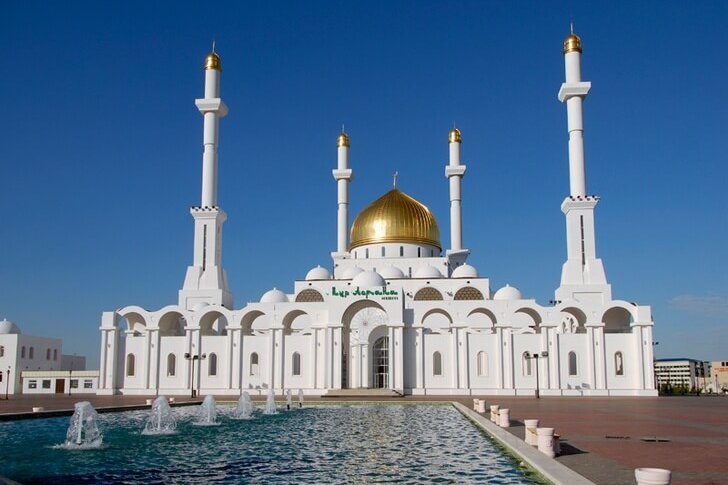
Assumption Cathedral
Astana Orthodox Cathedral, built in 2005-09. The cathedral has a cultural center, a hotel for pilgrims, a children's Sunday school and a small church history museum. On the square in front of the temple there is a monument to St. Sergius of Radonezh. The relics of Orthodox saints and several valuable icons received as a gift are kept inside.
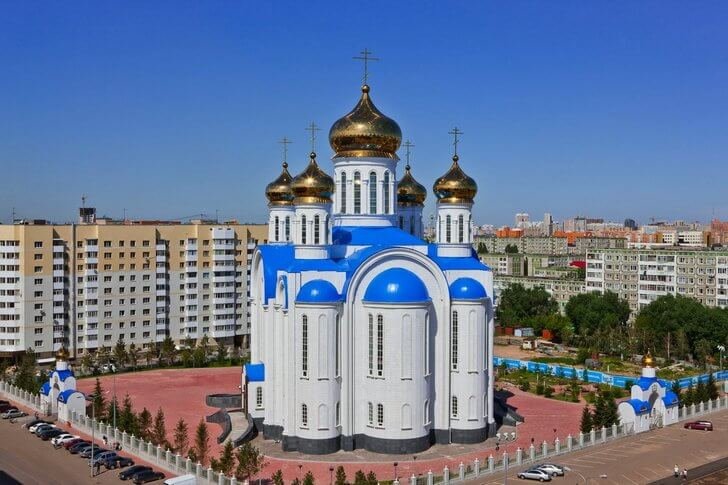
Museum of the First President of the Republic of Kazakhstan
N. Nazarbayev is a revered leader of the nation, who did a lot for the country during the transition period after Kazakhstan gained independence. The museum named after him is located in the former residence on the street. Beibitshilik. The exposition is made up of Nazarbayev's personal books, his scientific works, awards and interior items. The museum staff is engaged in supporting children with disabilities - organizing competitions, thematic seminars and exhibitions.
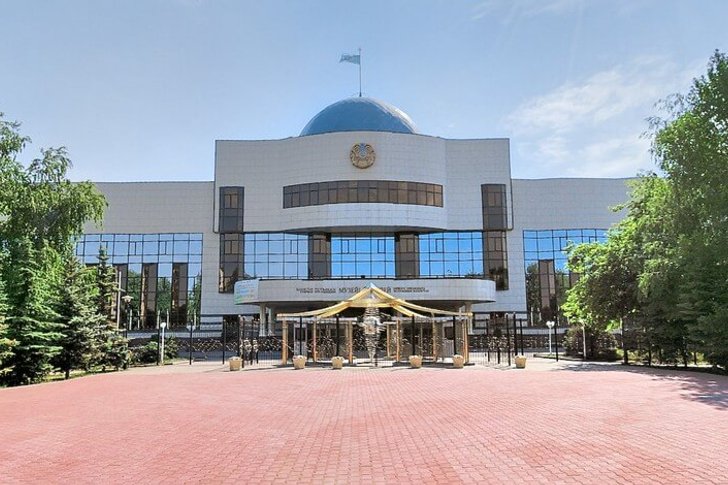
National Museum of the Republic of Kazakhstan
The extensive collection is housed on an area of 75,000 m². It covers the time period from antiquity to the present day and consists of archaeological, cultural and ethnographic artifacts. The museum is divided into several halls: Astana, independent Kazakhstan, history, ethnography, contemporary art, gold. Modern technologies are actively used to demonstrate the collection.
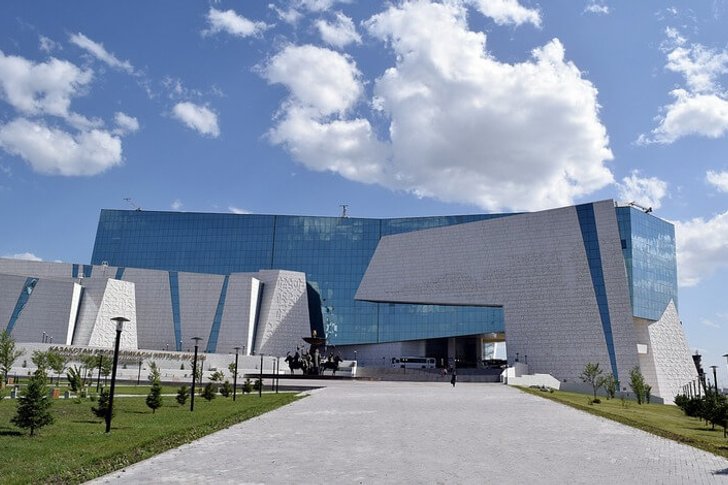
Museum of Saken Seifullin
S. Seifullin is a poet, playwright, public figure and teacher who made an invaluable contribution to the development of the culture of Kazakhstan. In memory of this extraordinary person, a memorial museum was opened in Astana in 1998, where personal belongings of the writer, photographic materials, documents, books and works of art related to the creative path of S. Seifullin are collected. The exposition is housed in a small wooden house, an architectural monument of the 19th century.
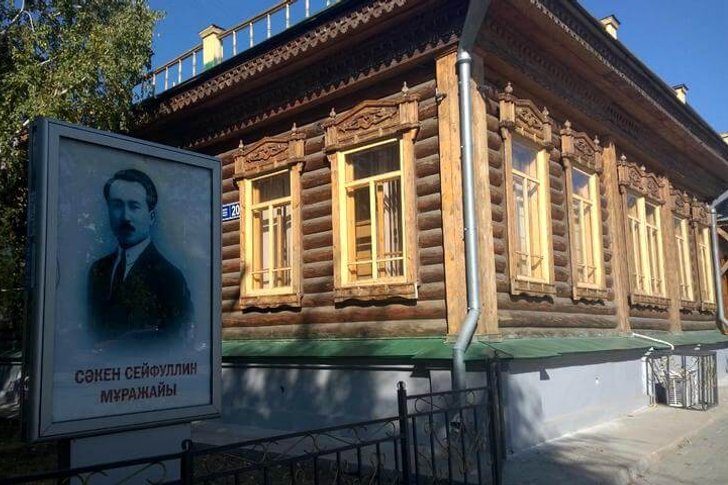
Astana Opera
The capital's opera house, built in 2013 at the suggestion of N. Nazarbayev. The building was built in neoclassical style. Despite its novelty, it has already been recognized as a national architectural monument. Specialists from the Italian La Scala, as well as from the Bolshoi and Mariinsky theatres, were specially invited to select the artists who made up the theatrical troupe.
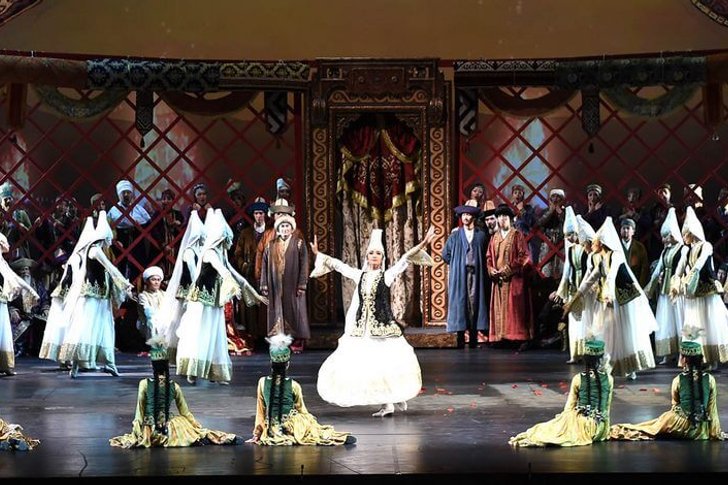
Russian Drama Theater named after M. Gorky
The theater was created at the end of the 19th century, which makes it the oldest stage in the Kazakh capital. In 1939 he moved into the building, where he remains to this day. In 1969 the theater was named after M. Gorky. The theater troupe regularly takes part in international festivals, which indicates the high professionalism of the actors. The repertoire is mainly composed of works by Russian and foreign classics.
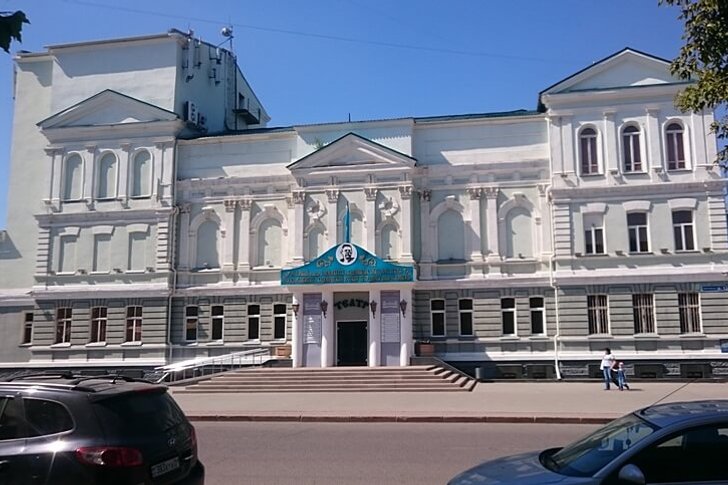
Central Concert Hall "Kazakhstan"
The site was opened in 2009 with the personal presence of N. Nazarbayev. It is used for concerts, festivals and conferences. Thanks to excellent acoustics, it is possible to organize musical events of various formats here. The building is designed as a structure with an irregularly shaped façade, which is often compared to the petals of a fantastic flower.
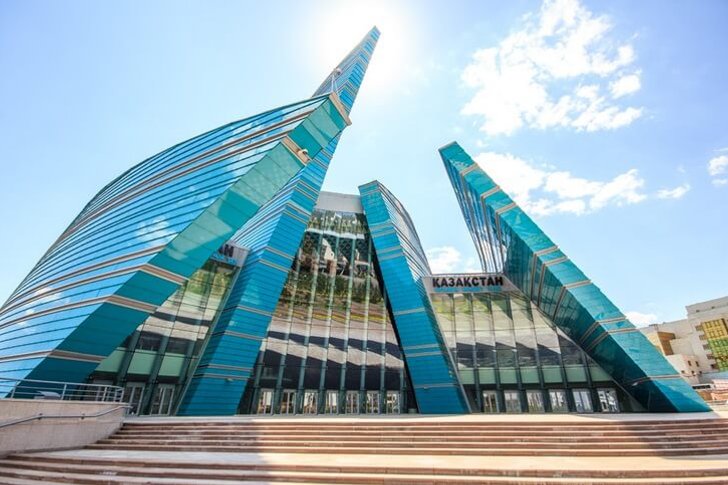
Astana circus
The circus building resembles the outline of a flying saucer. The original project was designed by the architect T. Abdilda. In addition to the arena and the auditorium, the complex also includes a hotel with more than 100 seats. The program of the circus is quite diverse - it includes both traditional performances for the genre and original productions using national motifs. About 300 people are involved in the troupe.
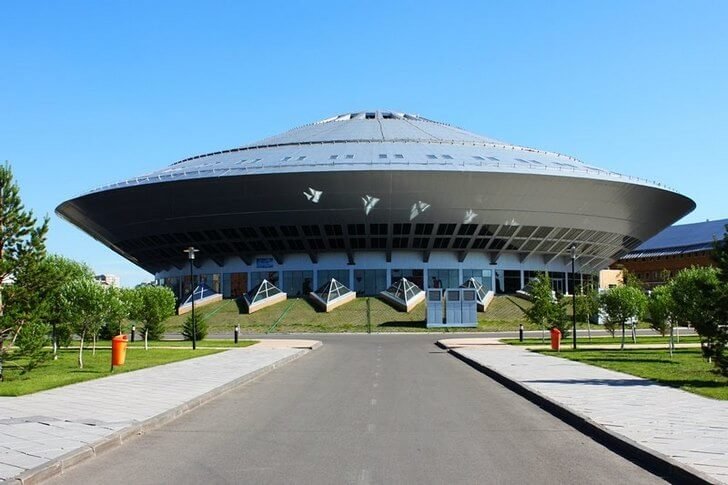
Embankment of the Ishim River
One of the main tourist places in Astana. Festive events are often held here, gathering a large number of citizens. The embankment offers a magnificent view of the new districts of the city, the construction of which used modern architectural solutions and original projects. From here you can start a walking route around the Kazakh capital.
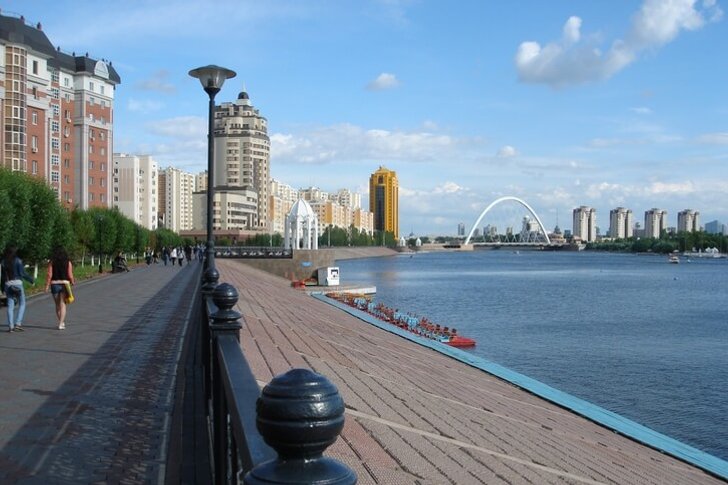
Monument to Khan Kenesary
Khan Kenesary is the national hero of Kazakhstan, who fought for the country's independence from the Russian Empire in the 19th century. He led a liberation uprising, which was subsequently suppressed by the tsarist troops. A monument in his honor was erected in Astana on the embankment of the Ishim River. The sculpture is made of bronze. It represents a figure of a khan in national clothes, sitting on a horse.
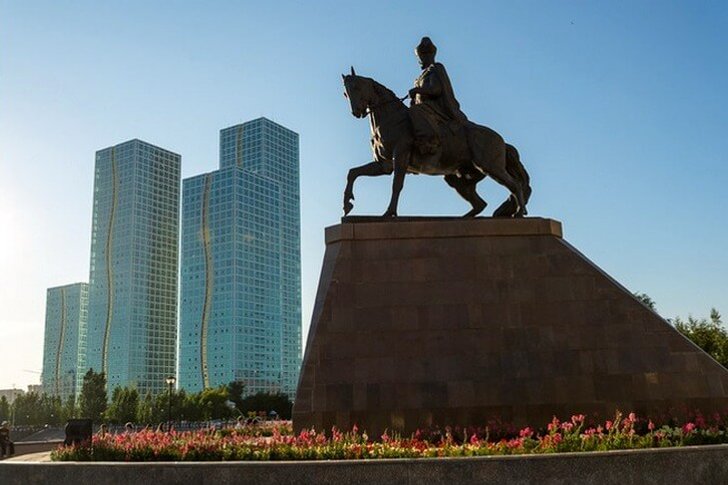
Triumphal arch "Mangilik El"
Astana Arc de Triomphe is a kind of response to European monuments. The opening of the monument took place in the presence of N. Nazarbayev. It was timed to coincide with the 20th anniversary of Kazakhstan's independence. The monument became the personification of the freedom of the country, to which the Kazakh people went for many years. During the construction of the arch, the rules of the "golden section" were used.

"Astana Arena"
A capacious sports stadium with a retractable roof, designed for 30,000 spectators. First of all, it is used to organize football matches, but its design allows other competitions to be held here as well. Astana Arena is the home ground for three football clubs. The stadium was opened in 2009. According to the UEFA classification, it has 4 stars.
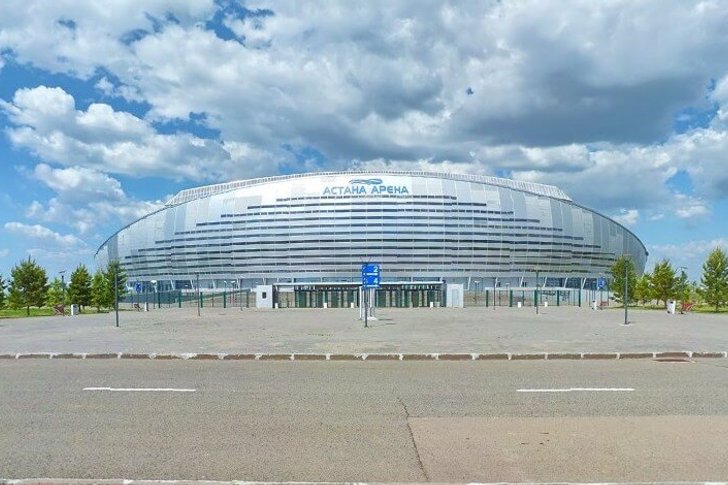
Map of Kazakhstan "Atameken"
Memorial complex located in the central park of Astana on Turan Avenue. The concept of the museum is quite unusual - "Atameken" is made in the form of a map, on which cities and regions of the country are located on a reduced scale. That is, it is a miniature model of Kazakhstan. Like many other iconic places in the capital, the complex was built on the initiative of N. Nazarbayev.
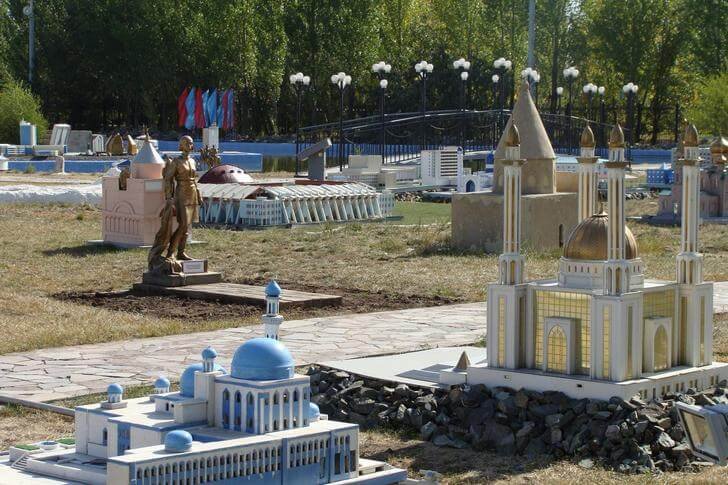
Entertainment center "Duman"
The entertainment complex is designed for the whole family. On its territory there are many attractions, an oceanarium (the only one in Central Asia), an exotarium, a children's playground, a 5D cinema, a museum, as well as numerous recreation areas and restaurants. "Duman" was opened in 2003. Since then, it has become one of the favorite vacation spots for citizens and tourists.
